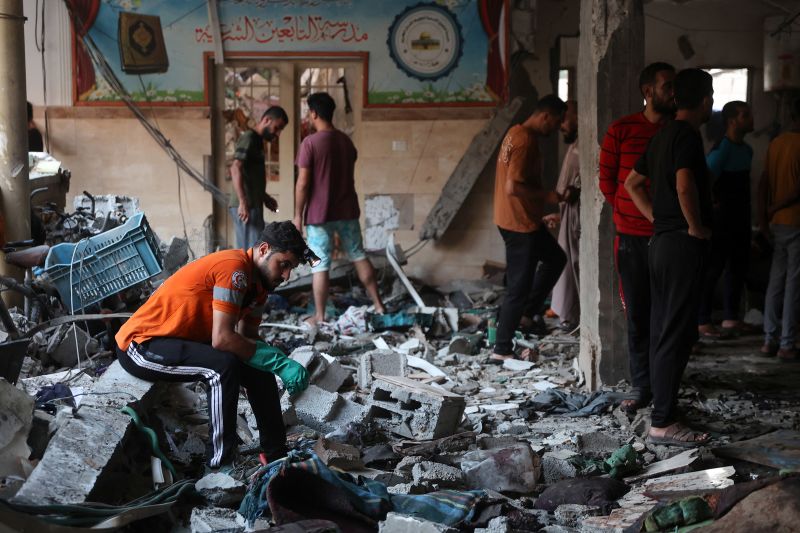Body:
According to mediators involved in the high-stakes negotiations, Yahya Sinwar, the leader of the Islamic militant group Hamas, has expressed a desire for a ceasefire agreement. The position of Israeli Prime Minister Benjamin Netanyahu in these tense negotiations, however, remains unclear.
Starting with Sinwar’s stance, his expressed intention for a ceasefire stands as a significant shift from Hamas’s hard-liner approach, as historically, the group has been vehemently resistant to such deals. Sinwar, realizing the pressing need to end ongoing hostilities and loss of life, has reportedly conveyed to mediators his interest in drawing a halt to the violence. According to these mediators, under conditions designed to improve living conditions in the besieged Gaza Strip which Hamas governs, Sinwar is open to signing a truce.
Moreover, unnamed sources involved with the process have indicated that Sinwar’s demands under the ceasefire deal mainly focus on ameliorating the lives of the people in Gaza. This may include requests such as the easing of Israel’s blockade, providing economic relief, improving infrastructure, and ensuring a consistent supply of electricity. However, it is important to remember that the exact terms being asked for by Hamas leader have not been publicly disclosed.
On the other hand, the position of Israeli Prime Minister Benjamin Netanyahu remains ambiguous. While past instances of conflict have ended in similar ceasefire agreements, it is not evident whether Netanyahu, facing an uncertain political landscape at home, will be receptive to Sinwar’s appeal this time. It is equally plausible that he might seek to prolong the conflict as part of his broader military and political strategy, especially considering the Israeli public’s current sentiment towards Hamas.
The ceasefire proposal also comes at a time when Israel has intensified its airstrikes on Gaza, responding to the rocket attacks by Hamas. The continuous combat has led to numerous civilian casualties on both sides, increasing international pressure on both parties to find a peaceful resolution. Yet despite the pressing need, Netanyahu’s stance, as mediated discussions continue, remains unclear.
Additionally, it is significant to recognize that foreign entities such as Egypt, Qatar, and the United Nations play crucial roles as potential mediators in these discussions. Their diplomatic relationships and neutrality could favor the creation of an agreement that addresses major concerns on both sides.
In conclusion, there is a growing interest in a ceasefire deal, largely from Sinwar and Hamas. The key factor that remains to be seen, however, is where Netanyahu stands regarding these negotiations. His decision will impact not only the immediate resolution of the current conflict but could also shape the political dynamics affecting the Israeli-Palestinian relationship in the long run. It is a matter of considerable interest, and the world watches with bated breath how events will unfold.




